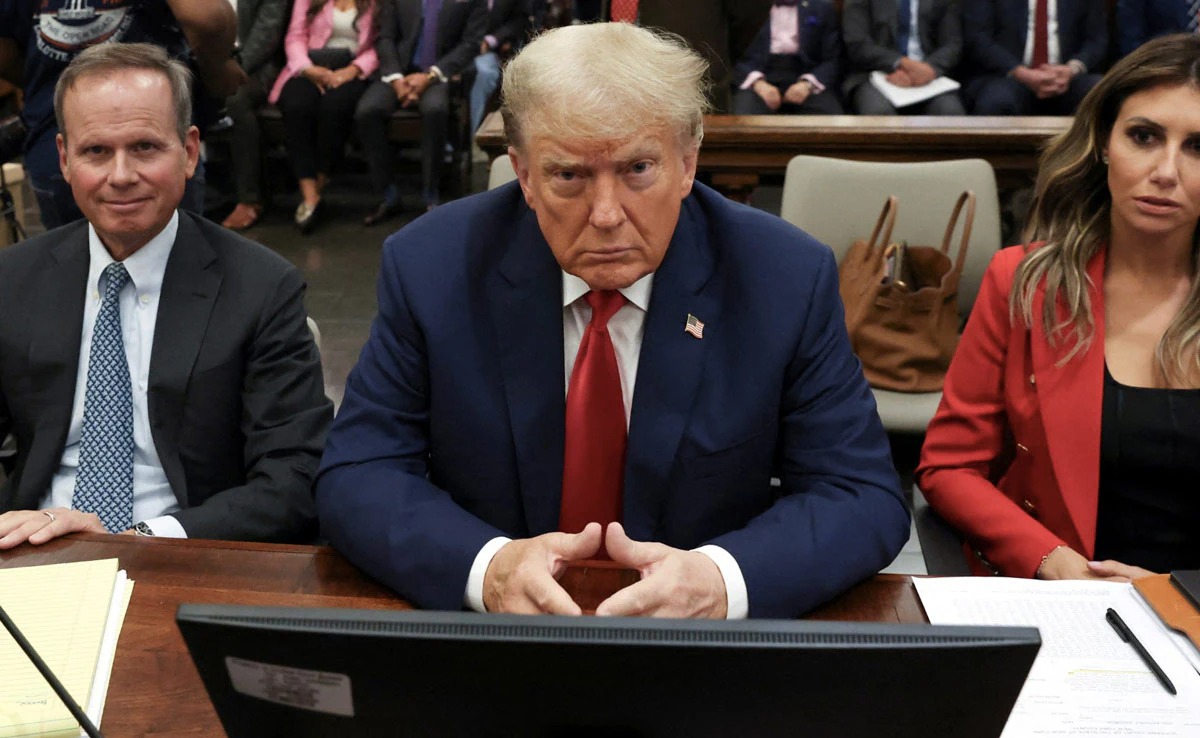The New York attorney general’s office and legal representatives for Donald Trump share a common desire: they want the judge overseeing the ex-president’s civil fraud trial to deliver a decision despite the potential involvement of former Trump lieutenant Allen Weisselberg in a perjury deal.
Recent reports from CNN and other news outlets suggest that Weisselberg, former chief financial officer of the Trump Organization, is in discussions with the Manhattan district attorney’s office to potentially plead guilty to a perjury charge related to his testimony in the attorney general’s fraud investigation.
This information prompted Judge Arthur Engoron to seek input from both Trump’s lawyers and the attorney general’s office on whether he should take the potential perjury admission into consideration and whether it should impact the timing of his expected decision later this month.

Donald Trump (Credits: NY1)
Trump’s legal team argues that it’s inappropriate for the judge to consider news reports about a potential perjury charge. On the other hand, state lawyers assert that the criminal investigation should not delay the judge’s decision.
The attorney general’s office is seeking $370 million as restitution for improper gains and aims to prohibit Trump from conducting business in the state.
Representatives for the defendants in the case find the judge’s inquiry into Weisselberg’s plea talks “unprecedented, inappropriate, and troubling.” They argue that it should not be considered as it was not part of the evidence presented during the trial.
Cliff Robert, an attorney for the Trumps and Trump properties, stated, “The only evidence that the Court can consider in rendering its decision is that adduced during the trial.” He emphasized that considering matters outside the trial record, especially speculative news accounts, is improper and raises questions about the court’s impartiality.
Attorneys for New York Attorney General Letitia James argue that a criminal investigation into perjury could continue indefinitely, but it shouldn’t hinder the judge’s decision. They suggest that Engoron could later amend his findings based on the outcome of the perjury inquiry.
Kevin Wallace, an assistant attorney general, stated, “OAG does not, however, believe that this development should result in any delay of a final decision.” He emphasized the need for accountability and suggested imposing necessary measures to prevent further fraud, including industry bars and the appointment of a monitor with robust oversight.
Alina Habba, an attorney representing Weisselberg in the civil fraud case, clarified that she doesn’t represent him in the criminal investigation and hasn’t spoken with prosecutors conducting the perjury inquiry.
She highlighted Weisselberg’s presumption of innocence and deemed it improper and unconstitutional for the court to presume criminal wrongdoing based solely on unsourced and unverified news articles.























